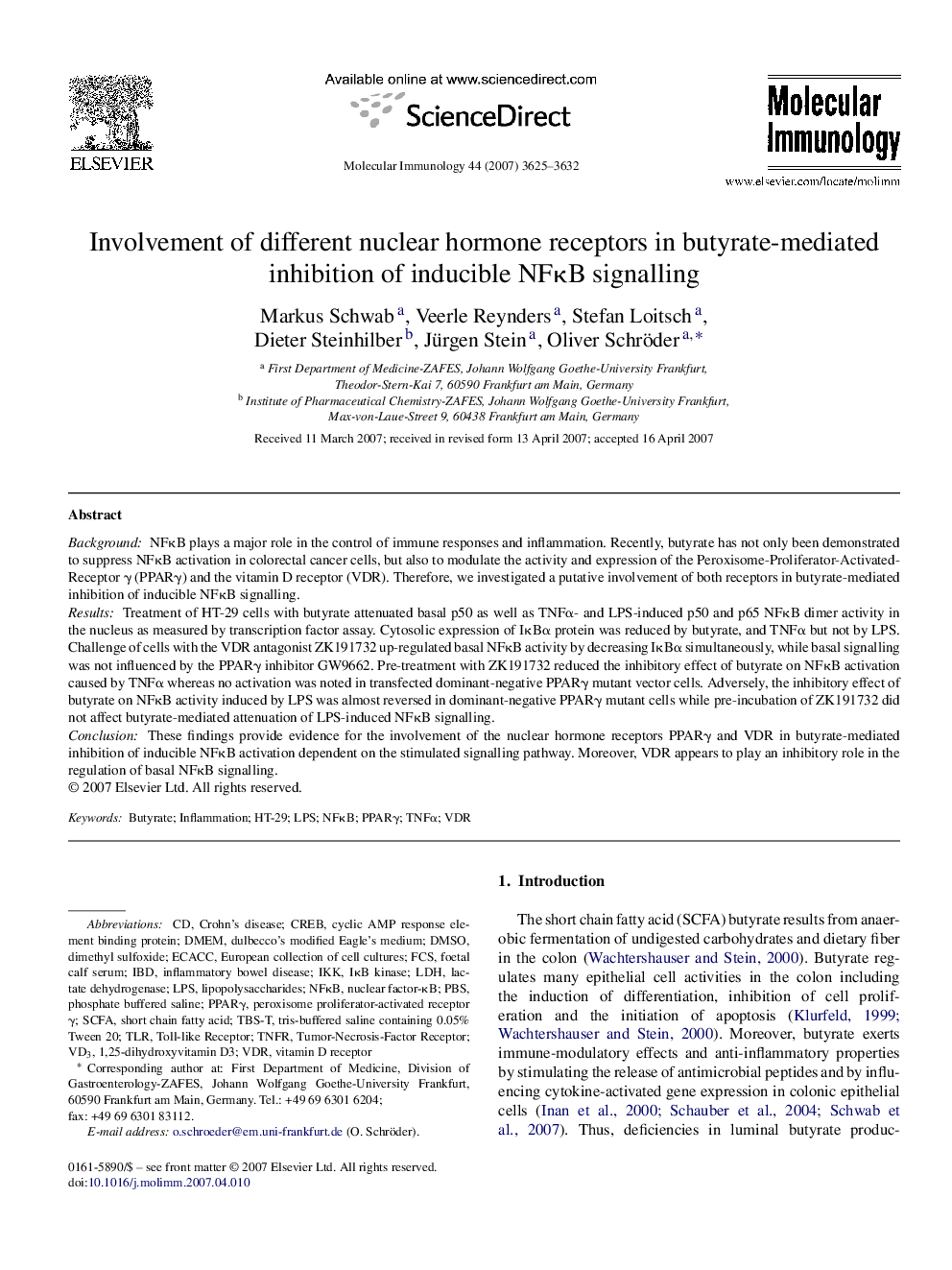| Article ID | Journal | Published Year | Pages | File Type |
|---|---|---|---|---|
| 2833013 | Molecular Immunology | 2007 | 8 Pages |
BackgroundNFκB plays a major role in the control of immune responses and inflammation. Recently, butyrate has not only been demonstrated to suppress NFκB activation in colorectal cancer cells, but also to modulate the activity and expression of the Peroxisome-Proliferator-Activated-Receptor γ (PPARγ) and the vitamin D receptor (VDR). Therefore, we investigated a putative involvement of both receptors in butyrate-mediated inhibition of inducible NFκB signalling.ResultsTreatment of HT-29 cells with butyrate attenuated basal p50 as well as TNFα- and LPS-induced p50 and p65 NFκB dimer activity in the nucleus as measured by transcription factor assay. Cytosolic expression of IκBα protein was reduced by butyrate, and TNFα but not by LPS. Challenge of cells with the VDR antagonist ZK191732 up-regulated basal NFκB activity by decreasing IκBα simultaneously, while basal signalling was not influenced by the PPARγ inhibitor GW9662. Pre-treatment with ZK191732 reduced the inhibitory effect of butyrate on NFκB activation caused by TNFα whereas no activation was noted in transfected dominant-negative PPARγ mutant vector cells. Adversely, the inhibitory effect of butyrate on NFκB activity induced by LPS was almost reversed in dominant-negative PPARγ mutant cells while pre-incubation of ZK191732 did not affect butyrate-mediated attenuation of LPS-induced NFκB signalling.ConclusionThese findings provide evidence for the involvement of the nuclear hormone receptors PPARγ and VDR in butyrate-mediated inhibition of inducible NFκB activation dependent on the stimulated signalling pathway. Moreover, VDR appears to play an inhibitory role in the regulation of basal NFκB signalling.
